MASTER AND COMMANDER: THE FAR SIDE OF THE WORLD Explained
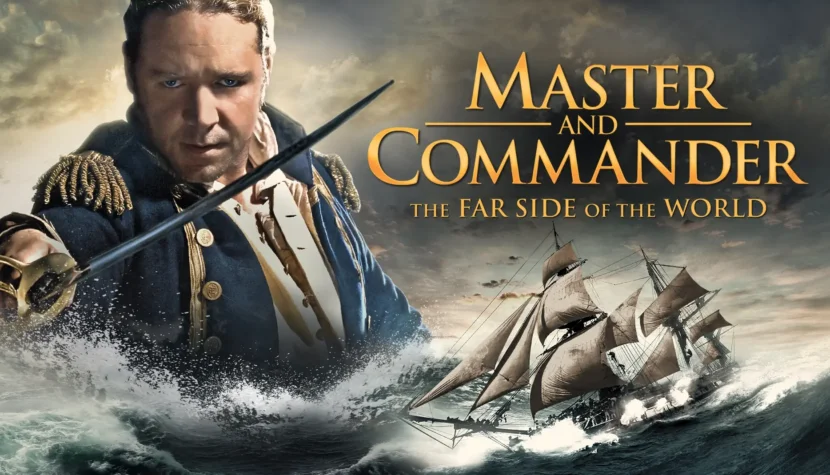
From the clash with the Absolute and the ruthless selection in Picnic at Hanging Rock, through the thesis that indestructibility can paradoxically become a destructive force, as it lacks balance (Fearless); the search for ways to free the mind, break barriers, and overcome the pain that comes with opposing one’s individuality to the world (Dead Poets Society), to the rebellion of man against absolute control (The Truman Show). Weir’s protagonists are always manipulated, and although they are driven to persistently seek their own strength, this strength is always a reflection of something greater and higher, born in a confrontation with the roots of primal creation.
Ultimate power will not be granted to us—we can only strive toward its source, wounding ourselves painfully and achieving mere illusions of fulfillment, the only ones available to the perception of our flawed eyes. He had a particular fascination with seeking the algorithm of balance; he was captivated by the creative power of the smallest element in the functioning of the whole, the counterbalance created by phenomena, human virtues and flaws, convictions and aspirations, failures and triumphs. He never provided final answers. And yet, with his expansive and expressive vision in Master and Commander: The Far Side of the World, Peter Weir seems to arrive at a conclusion in his tireless quest to unravel the mystery of the meaning of human life against the backdrop of eternity and the order of creation. Although he traverses territories that he seemed to have already thoroughly explored and interpreted, this conclusion turns out to be surprising—using the same motifs, the director sheds new light on their significance.
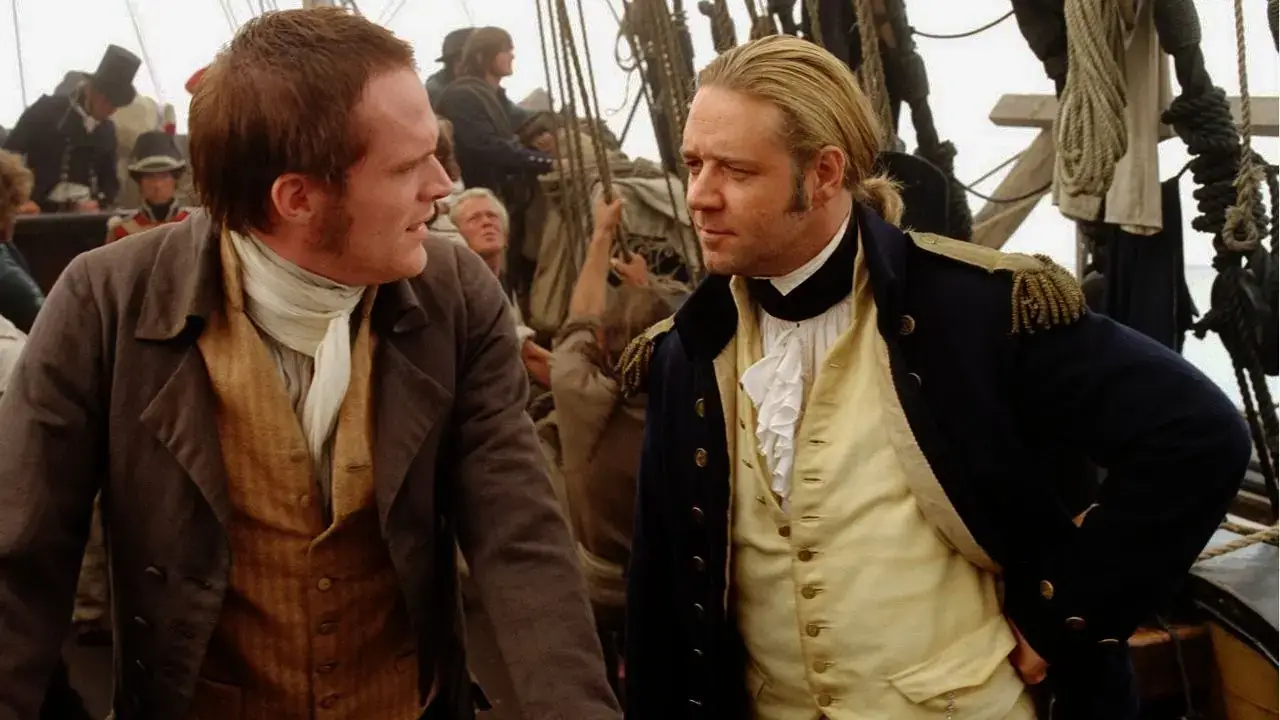
The story takes place during the time when Napoleon Bonaparte is conducting his conquests on the international stage, and the mere sound of his name evokes power and dread. The crew of the ship HMS Surprise, under the command of Captain Jack Aubrey, is attacked by the French frigate Acheron off the coast of South America. Despite the fact that the opponent has a significant advantage, Captain Aubrey decides to pursue and defeat it at all costs. Known to his crew as “Lucky Jack,” the captain is a seasoned veteran, a deserving sea wolf who once served under Admiral Nelson himself. He believes in authority (“a man needs authority,” he says), in duty—and in himself. Endowed with extraordinary charisma (there is only one scene in which he raises his voice to issue an order), he is surrounded by the respect owed to the “first after God,” and by unquestioning trust. His friend and companion, Dr. Stephen Maturin, is a dedicated surgeon, an excellent specialist, and also a passionate naturalist, fascinated by even the smallest miracles of life.
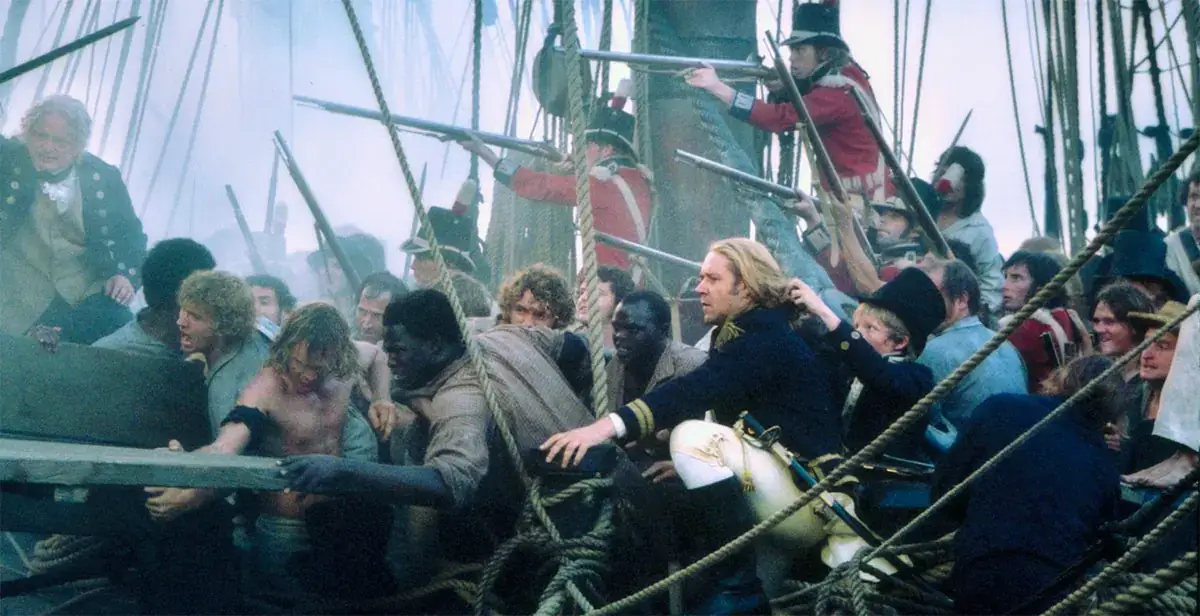
Looking at the delicacy with which he holds a microscopic insect in his hand, at his subtle, sensitive intellectual face, no one would suspect the immense inner strength and courage this man possesses. He is a warrior, but an ascetic warrior—fighting is not his calling but a necessity he never shies away from when the situation demands it. At the same time, the doctor represents the voice of emotion that accompanies Aubrey, the embodiment of his humanity, a brake on the path to tyranny. Together, they form a harmonious duo, a motif so often used by Weir. However, this time is different—there is no search for unity or fusion. Not as with Marion Quade and Miranda, where balance meant annihilation and dissolution into the Absolute. Not as with Neil Perry and Todd Anderson, where the mistakes of one guided the other onto the path of understanding and inheriting the legacy. This is not the symbolic wall of Gallipoli. Captain Jack Aubrey and Dr. Maturin remain two distinct individuals; their musical duet, violin and cello, exemplifies how individualities can complement each other in harmony without crossing the boundaries of their physical selves. For the first time, Weir presents the conclusion that perfection is relative, and as such—it is attainable.
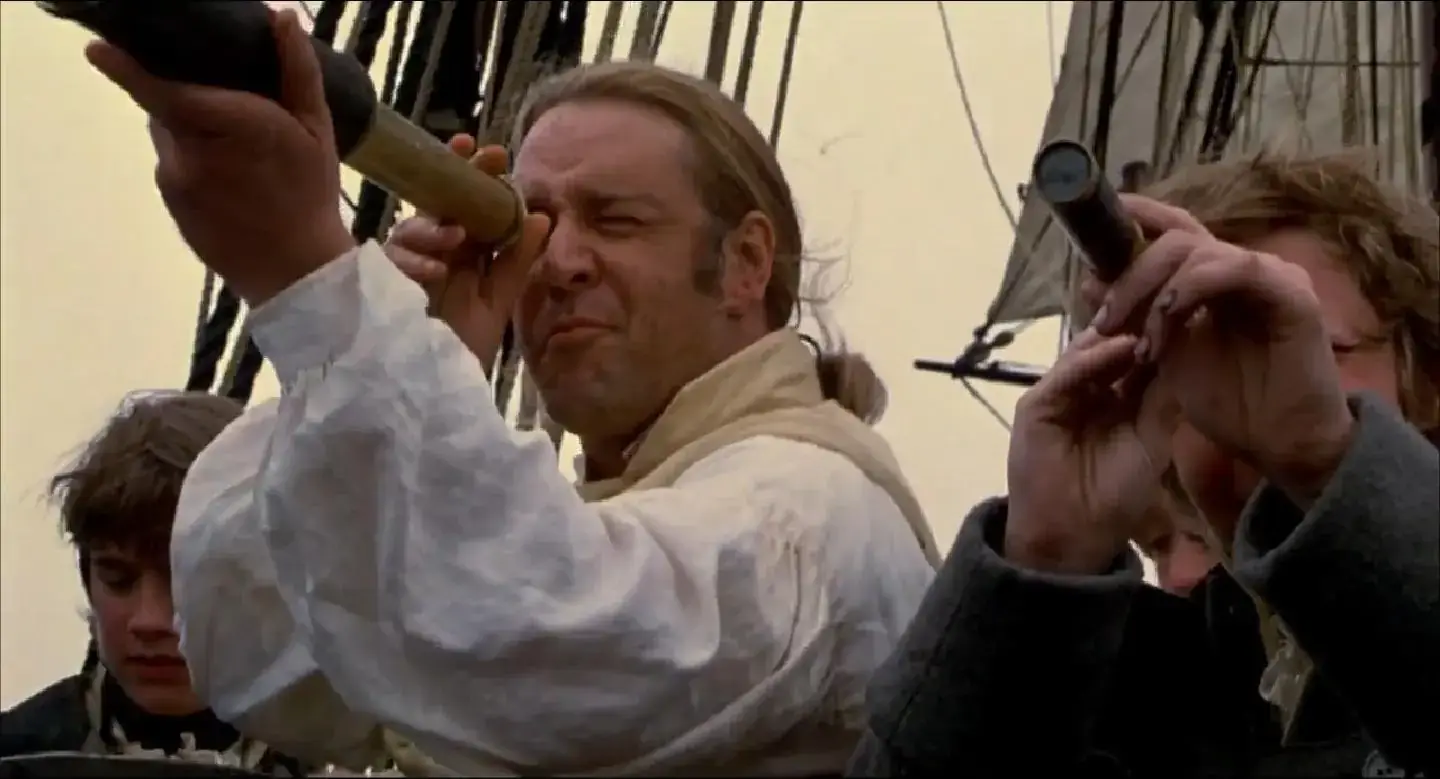
Both “inheriting the legacy” and achieving unity find their manifestation in the person of young Lord Blakeney. The youthful sailor loses his arm during the first encounter with the frigate Acheron. Yet, this disability does not extinguish his fighting spirit. He possesses Dr. Maturin’s observational passion and love of nature, combined with a deep, innate sense of morality (he is the only one to stand by the “cursed” second lieutenant). In circumstances most conducive to degeneration, cynicism, and despair, he discovers the key to growth and victory.
This was something little Sarah from Picnic at Hanging Rock could not achieve, something Todd Anderson merely hinted at as a possibility, and something panic halted midway for Truman Burbank. Lord Blakeney is the victorious culmination of all these attempts. Furthermore, the formula “forgive the rebel” mysteriously transforms into the formula “ask forgiveness for the defeated.”
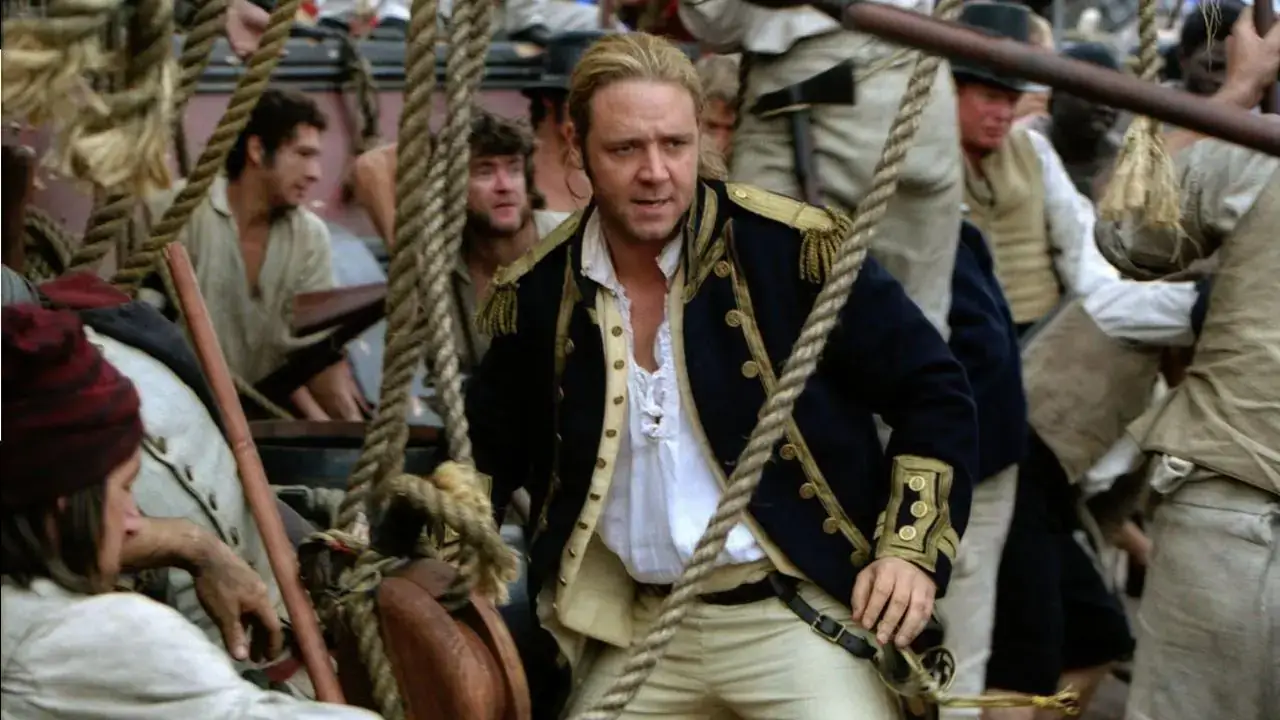
The unyielding Weir, the consistent Weir, who once accepted the rule of selection as the path to perfection, now suggests that weakness is not a fault. The unfortunate second lieutenant, Mowett, chooses death as both an escape and a punishment for his cowardice. Cursed, a “Jonah,” the source of misfortunes—he feels guilty and persecuted. But does he truly take his own life because he could not bear the whispers behind his back and the scornful smiles? Was it truly the force of the crowd that excluded the weaker individual from the group? Or perhaps such a choice is the only strength Mowett had left, his sole way of fulfilling his role as an officer?
During the funeral ceremony, Captain Aubrey asks the deceased for forgiveness. “We are all creatures of God,” he says. “We cannot always become what we wish to be.” Weakness is not a fault! The mercy of God embraces everyone, whoever they may be. This is yet another unconventional suggestion: we did not emerge from a morally indifferent, perfect Absolute. We are the work of love. We are worthy of forgiveness—and capable of forgiving.
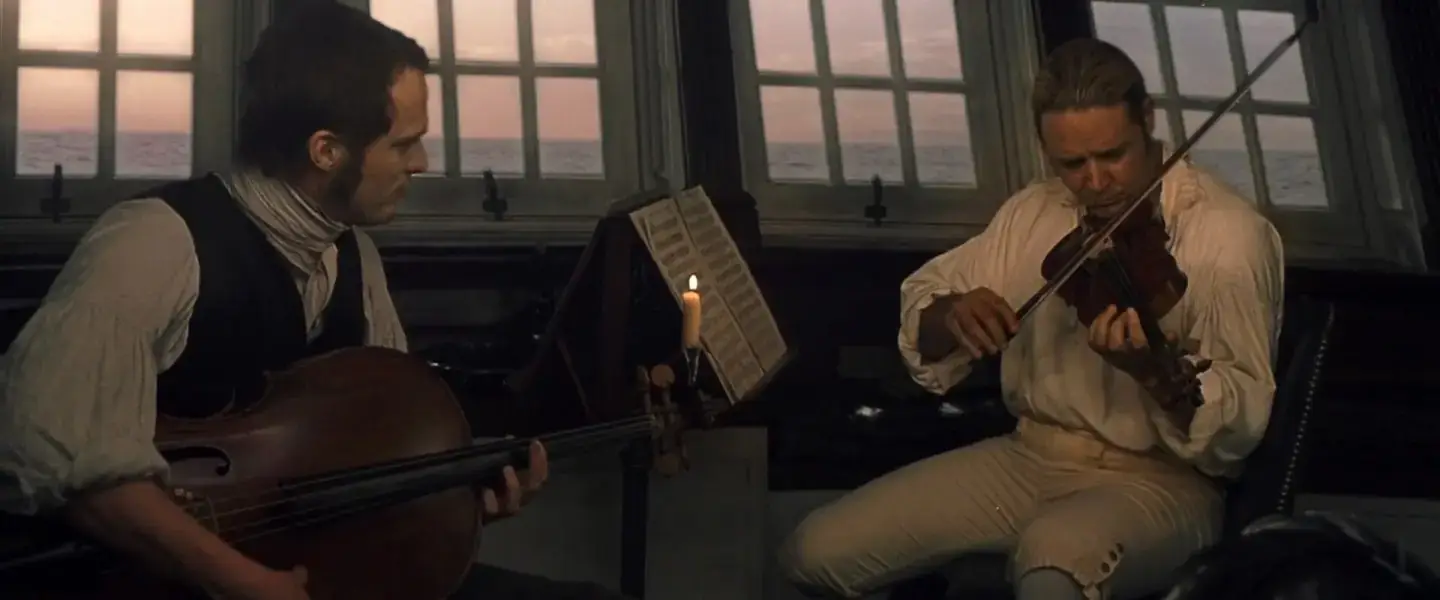
And so we arrive at the conclusion that absolute power nonetheless requires a marker. Civilization has condemned us to war—consider the shooting of the doctor who merely seeks to study a new species of bird—but even if fighting is our calling, even if the primal instinct drives us to persist in struggle as a path to growth, the rules of the game are far from fixed. The Master and Commander could have sacrificed his friend’s life and pressed forward in pursuit of the enemy. He had every right to do so, as his word was law. Yet, he yields and follows the voice of his heart.
This does not mean he has surrendered. He will fight again… and again… and again. He will only ever reach an oasis of peace fleetingly, briefly. Yet if he refuses to allow anything to limit his power, he will become unworthy of wielding it. A paradox, isn’t it? An absolute ruler only truly becomes one if he is constrained. Over all, there rules the principle of love. Without it, he will be no more than a tyrant. On his own ground? It makes no difference. Every element reflects the whole. This ship is England. The rule of power and the rule of love must complement each other—at the far side of the world or anywhere else. Only then, even a struggle, despite the sacrifices it entails, will become harmony, the undeniable law of existence.
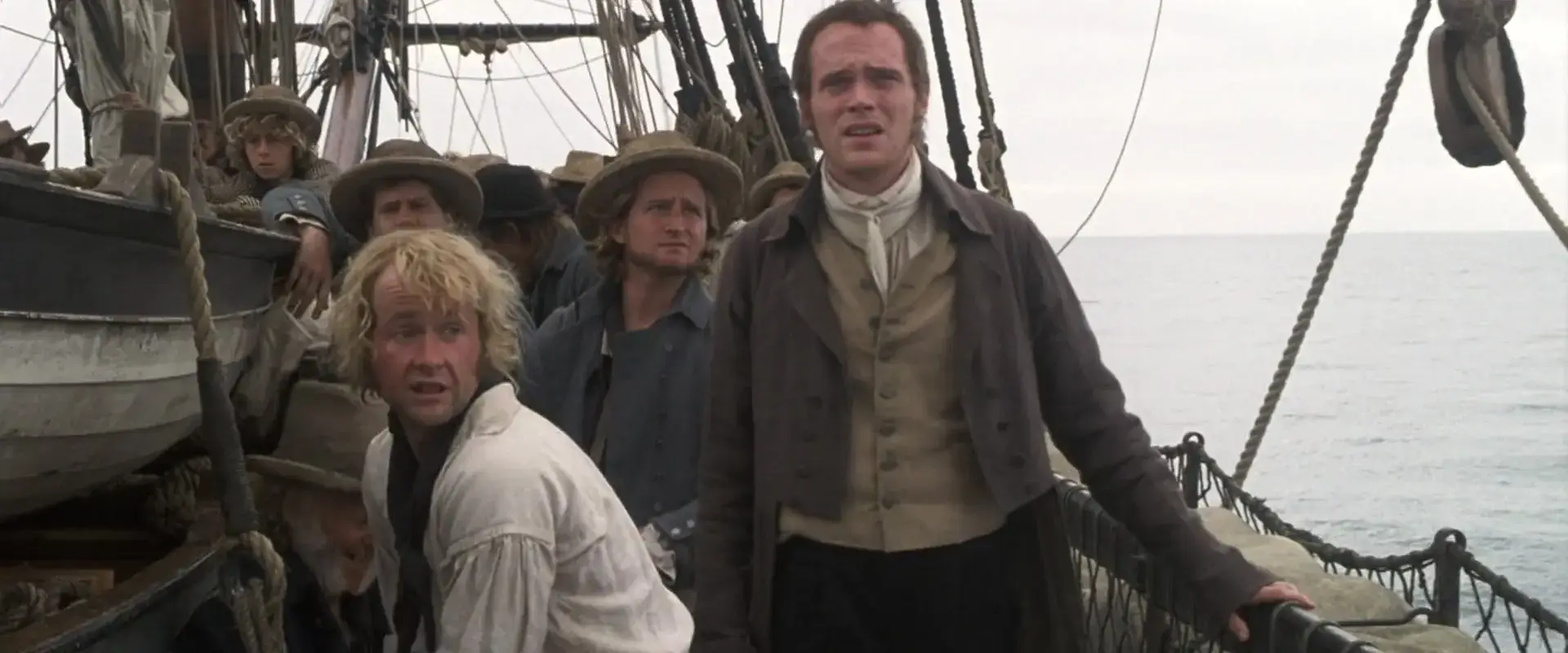
The beauty of existence, Weir conveys, lies precisely where its hardship resides—in imperfection. And perhaps it is here that we must seek the infinite and incomprehensible wisdom of the Divine.

